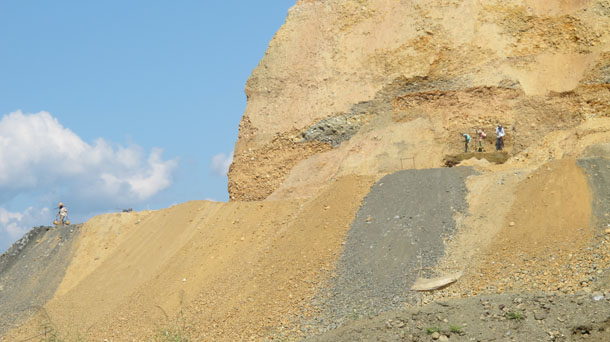HPAKANT/HONG KONG — Jade dealers in Hong Kong said their businesses are suffering from soaring prices for Burmese raw jade and jade jewelry due to concerns over a drying up of supplies from the jade-mining town Hpakant, in Kachin State.
Li Qi, a Chinese jade trader who owns a shop in Hong Kong said he struggled to source Burmese raw jade for his business, which carves the gemstone and turns it into jewelry.
Li said a few years ago he was able to buy a piece of Burmese jade at trade fairs in Jieyang City, in the southern Chinese province of Guangdong, for about US $2,700 and process it into a piece of jewelry that would sell at ten times the price of the raw stone.
These days, Li and other Hong Kong jade traders are struggling to turn a profit as they can barely afford to acquire raw jade, while many customers are turned off by the high prices for jade jewelry and demand is falling.
“[Raw] stones that were only worth 10 thousand yuan [$1,600] before, are now is sold at least 15 thousands yuan [$2,400],” he told The Irrawaddy. “People are definitely buying less [jade jewelry] last year. So, running the business becomes a very difficult task.”
Yet, Li said he believes that the market situation could improve, adding that demand for high-quality jade jewelry remains strong. “Prices of those types of jades that are of high quality have actually risen with 10 to 15 percent from last year,” he said.
Burma produces the vast majority of the world’s jade and the Burmese gemstone is of the highest quality. Most of it is sourced from the Hpakant, a small mining town located 350 km north of Mandalay, in the conflict-torn Kachin Mountains.
Foreigners are barred from visiting the frontier-like town, where thousands of workers perform dangerous, back-breaking work in order to unearth the gemstone. Most of the jade is bought up by Chinese dealers who smuggle it back to their country, where jade is more highly prized than gold.
Jade prices have risen over the past decade as the spending power of Chinese consumers increased. The bubble in the jade market has now reportedly occurred due to fears over a shortage of Burmese jade or the possible introduction of measures by Burma’s reformist government that would limit jade exports and force jade-processing to take place in country.
In Hpakant, a Burmese jade merchant named Yaw Han told The Irrawaddy recently that the jade reserves there could run out in the near future, when bigger mining companies using sophisticated technology move in to replace current labor-intensive forms of mining.
Standing atop a mountain, which offered a 360-degree viewpoint of the scarred mountains where the jade-mining takes place, Yaw Han said, “All the hills and mountains you see produce jades and precious stones. If we continue to find jade through traditional hand-digging, I think that we can find jade for the next generation. But, if companies use modern technology these mountains can be gone within 15 years.”
Much like the timber of Burma’s northern forests, most of the jade is smuggled over the country’s border with China through unregulated trade, without ever being taxed.
Ministry of Commerce trade data provided to The Irrawaddy last year showed that jade was the country’s second-biggest source of revenue after natural gas in 2011-2012, valued at about $780 million. It remains unclear how much revenue the government generates from the gemstone trade.
However, a July 2013 report by the Ash Center at Harvard University in the United States put the value sales of Burmese jade as high as $8 billion in 2011. The discrepancy in these data suggests that most of the jade flows over the border unregulated.
Several times per year the government hosts the national gemstone emporium, a huge trade fair usually held in Naypyidaw where mostly jade is sold.
Yup Zau Hkawng, director of Jade Land Company, a leading jade mining company in Hpakant, said that the amount of jade transported overland to China dwarfed the official amount of raw jade sold at the government trade fairs.
Jade companies, he said, preferred not to sell their wares at the emporium as they would be subject to high government tax rates that could add up to 30 percent of the value of their sales.
“We have to pay three types of taxations … 10 percent for domestic tax goes to the Ministry of Mining, another 10 percent goes to emporium for export tax, and the companies have to pay 10 per cent to be allowed to bid at auctions to win mining concession,” said Yup Zau Hkawng.
Saw Yan Naing reported from Hpakant, Echo Hui reported from Hong Kong.

















